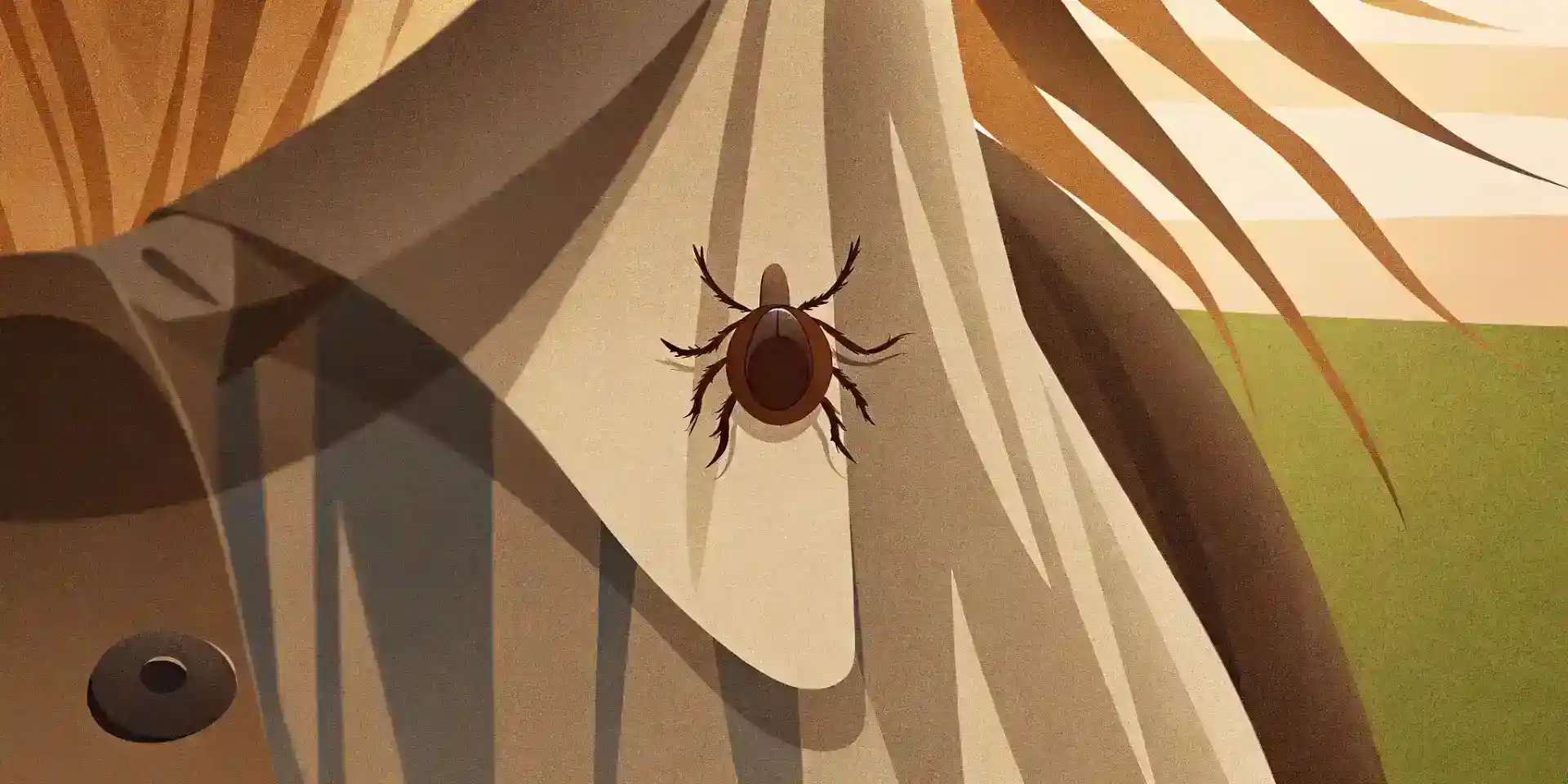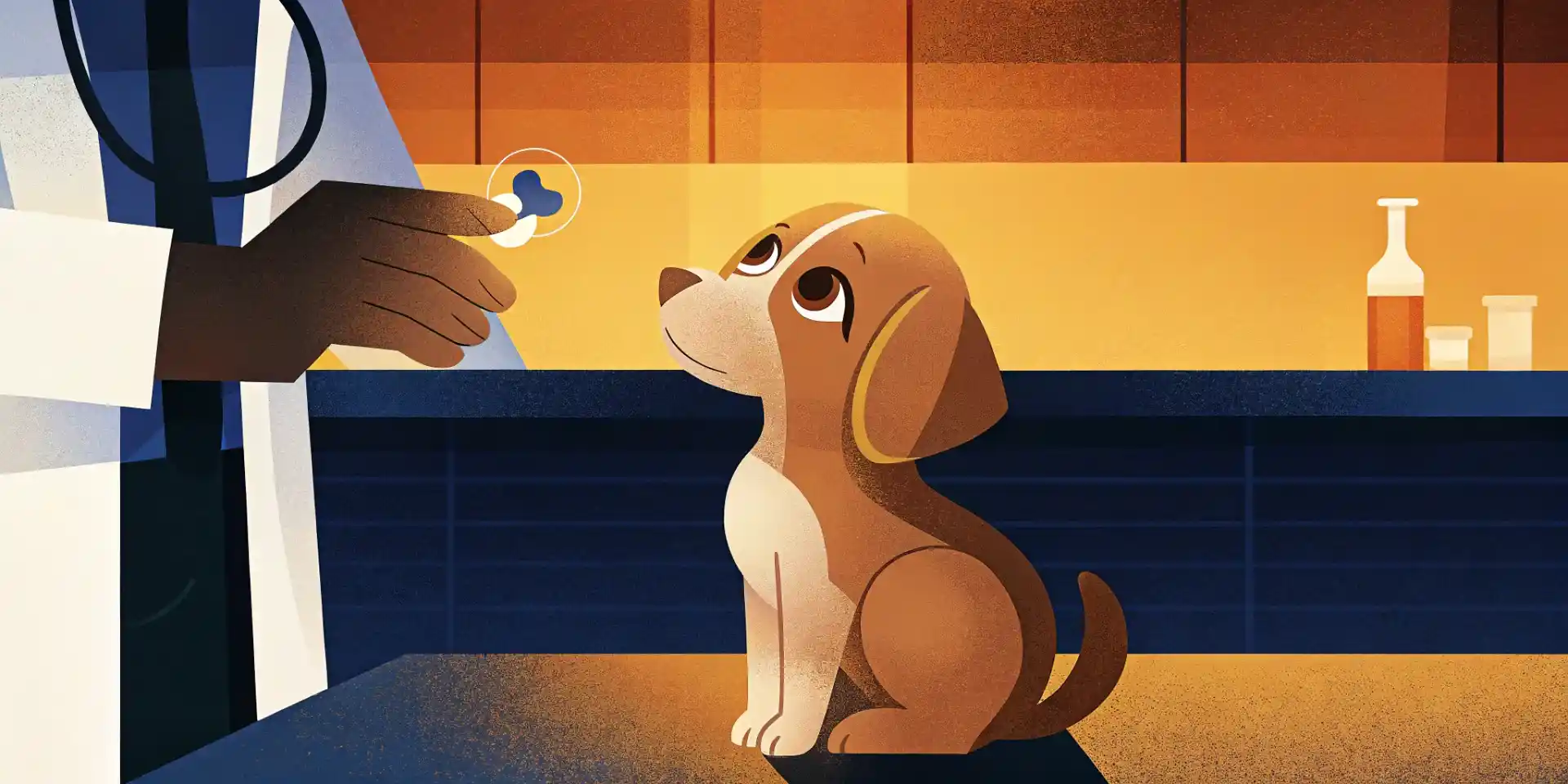
Puppy Parasite Prevention: Keep Your Pup Healthy
Puppy parasite prevention is key! Learn how to keep your pup healthy & happy with our guide to fleas, ticks, & worms. Click to learn more!
Parasite Prevention for Puppies: Fleas, Ticks, Worms, and More
Bringing a new puppy home is an incredibly exciting time! Those puppy-dog eyes, the playful nips, and the endless cuddles are just the beginning of a beautiful relationship. But along with the joy comes responsibility, and one of the most crucial aspects of puppy care is protecting them from parasites. No one wants to see their new furry friend suffering from fleas, ticks, or worms. In this comprehensive guide, we’ll cover everything you need to know about puppy parasite prevention, including safe parasite treatment for puppies, natural parasite control for puppies, and more, ensuring your little one stays happy and healthy.
Why Parasite Prevention is Crucial for Puppies
Puppies are especially vulnerable to parasites because their immune systems are still developing. A heavy parasite burden can lead to serious health problems, including anemia, malnutrition, and even death. Plus, some parasites can be transmitted from pets to humans, making prevention important for the whole family. I believe that proactive parasite prevention is one of the most important things you can do for your new puppy.
Fleas: Tiny but Terrible
Fleas are a common nuisance for dogs of all ages, but they can be particularly problematic for puppies. These tiny, wingless insects feed on blood and can cause intense itching, skin irritation, and even anemia in severe cases.
Identifying Fleas on Your Puppy
- Excessive scratching or biting: This is the most obvious sign. Pay close attention to your puppy’s rump, tail base, and belly.
- Flea dirt: These are tiny black specks (flea feces) that resemble dirt. You can find them by parting your puppy’s fur. If you place them on a damp paper towel, they will turn reddish-brown.
- Seeing live fleas: Adult fleas are small, brown insects that move quickly through the fur.
Safe Flea Treatment for Puppies
It’s important to use products specifically formulated for puppies, as some adult flea treatments can be toxic. Your veterinarian can recommend the safest and most effective options for your puppy’s age and weight. Some common options include:
- Flea shampoos: Can provide immediate relief and kill adult fleas.
- Topical treatments: Applied to the skin, these treatments can kill fleas and prevent re-infestation for several weeks or months. Make sure to discuss the right age range for these with your vet.
- Oral medications: These are given by mouth and can be very effective, but they are not always suitable for young puppies.
 A young Golden Retriever puppy getting a flea bath with specialized puppy shampoo.
A young Golden Retriever puppy getting a flea bath with specialized puppy shampoo.
Safe flea and tick prevention for puppies under 12 weeks
When it comes to very young puppies, under 12 weeks old, your options are far more limited. Always consult with your vet before using any flea or tick prevention products on a young puppy. Gentle bathing with a mild puppy shampoo may be the safest option until they are old enough for more potent treatments.
Ticks: Disease-Carrying Hitchhikers
Ticks are external parasites that attach to your puppy’s skin and feed on their blood. They can transmit serious diseases, such as Lyme disease, Ehrlichiosis, and Anaplasmosis.
Identifying Ticks on Your Puppy
- Feeling a bump on your puppy’s skin: Ticks can feel like small bumps, especially after they have been feeding.
- Seeing a tick attached to your puppy: Ticks vary in size and color, but they are usually dark brown or black.
Puppy Tick Prevention and Removal
- Daily tick checks: Regularly check your puppy for ticks, especially after walks in wooded or grassy areas.
- Tick removal tools: Use a tick removal tool to carefully remove the tick, grasping it as close to the skin as possible and pulling straight out.
- Tick prevention products: Your veterinarian can recommend tick prevention products suitable for puppies, such as topical treatments or oral medications.
 A close-up image of a brown tick attached to a dog’s fur, highlighting the importance of tick prevention.
A close-up image of a brown tick attached to a dog’s fur, highlighting the importance of tick prevention.
Worms: Internal Enemies
Internal parasites, or worms, can wreak havoc on your puppy’s health. Common types of worms in puppies include roundworms, hookworms, whipworms, and tapeworms. Puppies can contract worms from their mother, contaminated soil, or infected feces.
Signs of Worms in Puppies
- Diarrhea: Often bloody or mucus-filled.
- Vomiting: May contain worms.
- Weight loss: Despite a normal appetite.
- Pot-bellied appearance: Especially in young puppies.
- Scooting: Dragging their bottom across the floor.
- Visible worms in feces: Roundworms look like spaghetti, while tapeworms segments resemble rice grains.
Puppy Deworming Schedule and Medication
Puppies should be dewormed regularly, starting at 2 weeks of age and continuing every 2-3 weeks until they are several months old. Your veterinarian will recommend the appropriate deworming medication based on your puppy’s age, weight, and risk factors. In my experience, consistent deworming is the best way to protect your puppy from the harmful effects of worms.
Best deworming schedule for puppies under 8 weeks
Many puppies are adopted out at 8 weeks old, so knowing the right deworming schedule leading up to that point is crucial for new owners. Typically, vets recommend deworming at 2, 4, 6, and 8 weeks of age with a broad-spectrum dewormer.
Heartworm Prevention
Although less common in very young puppies, it’s important to start thinking about heartworm prevention early. Heartworms are transmitted by mosquitoes and can cause serious damage to your dog’s heart and lungs. Your veterinarian can advise you on when to start heartworm prevention based on your location and the prevalence of heartworms in your area. In endemic areas, year-round heartworm prevention is often recommended.
 A veterinarian administering a chewable heartworm prevention medication to a happy puppy.
A veterinarian administering a chewable heartworm prevention medication to a happy puppy.
Natural Parasite Control for Puppies: A Word of Caution
While there are many “natural” remedies for parasite control, I believe that these should be approached with caution. Many natural remedies have not been scientifically proven to be effective and may even be harmful to your puppy. Always consult with your veterinarian before using any natural remedies for parasite control. Garlic, for example, is often touted as a natural flea repellent, but it can be toxic to dogs in large quantities.
Creating a Parasite-Free Environment
In addition to treating your puppy directly, it’s important to create a parasite-free environment in your home and yard. This includes:
- Regularly cleaning your puppy’s bedding and toys.
- Vacuuming frequently, especially in areas where your puppy spends time.
- Keeping your yard clean and free of feces.
- Controlling fleas and ticks in your yard with appropriate insecticides.
Final Thoughts
Protecting your puppy from parasites is an ongoing process that requires vigilance and collaboration with your veterinarian. By following these tips and working closely with your vet, you can ensure that your puppy stays healthy and happy, allowing you to enjoy all the wonderful moments that come with puppy ownership. Don’t be afraid to ask your vet any questions you have. They are your best resource for keeping your puppy healthy and parasite-free!
How often should I take my puppy to the vet for parasite prevention?
Regular check-ups are key. Most vets recommend taking your puppy in for a check-up and parasite prevention update every 2-4 weeks until they are around 16 weeks old, then annually thereafter, unless specific concerns arise.


